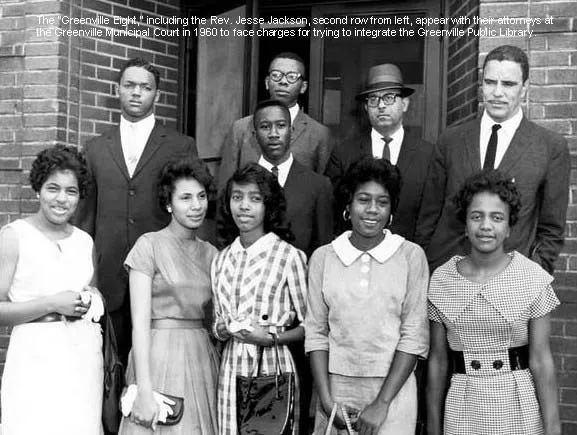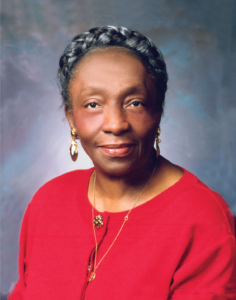- This week for Black History Month, MetroConnects honors five-term Greenville County Councilmember Xanthene Sayles Norris for her decades of service to the Greenville community.
- Councilmember Norris’s dedication to public service, civil rights and civic engagement has been a hallmark of the 93-year-old’s career.
- Norris retired from Greenville County Council when her term expired in December 2022.</span.
A Model of Civic Commitment
MetroConnects continues its commemoration of Black history month this week by honoring Greenville’s own Xanthene Sayles Norris. The five-term County Council member’s exemplary dedication to public service, civil rights and civic engagement in Greenville has earned her more accolades than can be listed. This week, we say thank you to Councilmember Norris for her steadfast service and care for the community.
Early Years in a Segregated South
Xanthene Norris remembers her childhood in Greenville fondly. She grew up poor, she said in an interview with Marvin Ira Lare, but she never knew they were poor. Her mother was a teacher and her father was first a railroad worker and then an elevator operator at The Greenville News. They were loving, hard working and provided for the family. Community members watched out for one another. Norris took piano lessons from the woman next door. Life in her Southernside neighborhood was, for the most part, good.
But then there was the time a white bus driver accused her of not paying her fare and slapped her. There were the white men who drove through her neighborhood, harassing the young Black women. And then there was the time in 1946, after she had left for college, that her parents wrote and told her not to come back that summer. Willie Earle had just been lynched and Greenville no longer felt safe. Norris and her parents both knew that something had to change.
The Civil Rights Era
Norris was attending Clark University in Atlanta at the time of Earle’s death when she met Martin Luther King Jr. The Civil Rights Movement was on its way, but had not yet begun in full force. There was something in the air, though, and change was on its way. In the interview with Lare, Norris said that she noticed something different when she returned to Greenville from Atlanta. “I was shocked when I looked up on the billboard at Church Street and I saw these Black women. That had not been before. … We were not considered beautiful,” she said. ‘It made me smile when I looked up … on the billboards to see that Black women were being able to do advertisements and all that we had not done before.”

By the 1960s, Norris was a member of the Springfield Baptist Church, a hub for civil rights activity. She was teaching French and social studies at her alma mater, Sterling High School, where she had been valedictorian of her class in 1946. She began training her students at the all-Black high school in peaceful protest tactics. She worked closely with Rev. James S. Hall Jr., vice president of the South Carolina NAACP, mentoring a young Jesse Jackson and other members of the “Greenville Eight,” who led the peaceful sit-ins that prompted the desegregation of the Greenville County Library. Her students also participated in desegregation efforts at the downtown airport and Woolworths.
Her Legacy Continues
Norris stayed active in civic life throughout the nearly five decades that she served as an educator in Greenville, first at the Greenville County Schools district, where she spent 34 years, and then for 10 years with the Greenville Urban League, whose mission is to advance equity by empowering the Black community. With the Urban League, Norris provided SAT and ACT training, took students on college visit trips, including to places like Berea College in Kentucky, which was the first interracial and coeducational institution in the South, and still today remains tuition-free.
In 1996, when Norris was already retired, she began considering running for Greenville County Council after a few people encouraged her to do so. But her husband was nearing retirement himself, and she said that the two of them decided they wanted to enjoy their years of leisure together. In the interview with Lare, she said that one morning, her husband asked if she was still thinking of running. “He looked at me and said, ‘Well, maybe you better think about it, you know?’” He died later that night. Lare and Norris both mused that this was his way of encouraging her before he passed on.
Retired and newly widowed, her friends also kept encouraging her, telling her it would give her something to do. Something to do indeed! It was hard at first, she admitted in a 2020 interview with Judi Buckley, former senator for the Virgin Islands. “I sat at the table with people who weren’t used to having a Black council member; they had to get used to me,” she said. Her experiences participating in desegregation struggles helped prepare her, she added. She came to be known as a quiet but firm voice on the council, never backing down from her points, but never expressing hostility, either, according to a 2006 editorial in Greenville Journal.
Hard Earned Successes
Among her hard won fights was making Martin Luther King Jr.’s birthday a holiday in Greenville County. The struggle for this recognition was contentious — Norris said she recalls seeing Confederate flags in the audience at Council meetings. After nearly 10 years championing the cause, and helping to organize a rally of 10,000 people (led by Greenville’s own Jesse Jackson), the County Council finally voted affirmatively for the ordinance in 2005. Greenville was the last county in the United States to officially recognize the day, which was made a federal holiday in 1983.
Norris’s other accomplishments include the official memorialization in 2009 of the site where Willie Earle was lynched in West Greenville. She also worked alongside State Rep. Chandra Dillard and County Councilmember Lillian Brock Flemming, the latter of whom who was the first African American woman to serve on the Greenville City Council, to build a pedestrian bridge in the historically Black Southernside neighborhood, restoring walking connectivity between this part of town and the rest of Greenville. The process took 10 years, but the bridge, named the Xanthene Sayles Norris Pedestrian Bridge, opened in 2020.
Retiring but not Retreating
Last year, after representing District 23 for 25 years, Councilmember Norris stepped down. Today, at 93 years old, she is enjoying her time at home in the historically Black district of Nicholtown. But, retirement from the Council does not mean it is time to entirely relax, yet. Last month, she told The Post and Courier that she will remain involved with the people she has built relationships with throughout her decades on Council, and continue dedicating her time to her work at Springfield Baptist Church.
